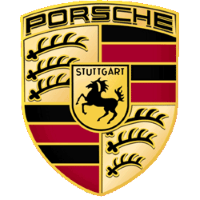|
**Haftungsausschluss: Der Text wurde mit Hilfe einer KI zusammengefasst und übersetzt. Für Aussagen aus dem Originaltext wird keine Haftung übernommen!**
**Zusammenfassung:**
Dieser Text kündigt eine neue "Market Talks"-Sektion an, die sich auf den Automobil- und Transportsektor konzentriert und dabei Unternehmen wie Honda, Porsche SE und Jet2 behandelt.
---
Would you like me to:
* Expand on any part of the translation?
* Tailor the translation to a specific audience (e.g., a formal business setting)? |
|
**Haftungsausschluss: Der Text wurde mit Hilfe einer KI zusammengefasst und übersetzt. Für Aussagen aus dem Originaltext wird keine Haftung übernommen!**
**Zusammenfassung:**
Dieser Artikel von Simply Wall St untersucht, ob Porsche Automobil Holding (PAH3.DE) derzeit unterbewertet ist. Der Hauptargument ist, dass die Analyse, basierend auf mehreren Bewertungsmethoden, zeigt, dass der Aktienkurs deutlich unter seinem intrinsischen Wert liegt.
Die Analyse nutzt drei Schlüsselansätze, um dies zu bestimmen: Discounted Cash Flow (DCF)-Analyse, Price-to-Book (PB)-Verhältnis-Vergleich und die Einführung von „Narrativen“ – einem Werkzeug, um Anlageentscheidungen auf der Grundlage der zukünftigen Perspektiven des Unternehmens zu gestalten.
**DCF-Analyse:** Die DCF-Modell prognostiziert zukünftige Cashflows und diskontiert diese auf ihren Barwert. Die Anwendung auf PAH3 schätzt einen signifikanten zukünftigen Free Cashflow (FCF)-Wachstum ein, der 2027 1,65 Milliarden Euro erreichen und potenziell bis 2035 über 3,4 Milliarden Euro liegen könnte. Basierend auf diesen Prognosen schätzt die DCF-Analyse einen fairen Aktienwert von 98,47 Euro. Dies deutet auf eine 64,0%ige Unterbewertung hin, was bedeutet, dass der Aktienkurs deutlich unter seinem prognostizierten zukünftigen Gewinn liegt.
**PB-Verhältnis-Vergleich:** Der Artikel hebt eine erhebliche Differenz im PB-Verhältnis im Vergleich zu Wettbewerbern und dem gesamten Automobilsektor hervor. PAH3 handelt derzeit mit 0,31x, während sein direkter Wettbewerb 0,82x und der Branchendurchschnitt 1,53x beträgt. Diese Diskrepanz bestätigt die durch die DCF-Analyse identifizierte Unterbewertung. Die Berechnung des „Fair Ratio“ betont die Unterbewertung zusätzlich, wobei ein Unterschied von mehr als 0,10 im Vergleich zum aktuellen PB-Verhältnis besteht.
**Narrativen – Die Anlage-Geschichte:** Die Erkenntnis, dass Bewertung nicht nur über Zahlen geht, führt zur Einführung von „Narrativen“. Dieser Ansatz fordert Anleger auf, ihren Glauben an die Zukunft des Unternehmens zu artikulieren und diesen Blickwinkel mit wichtigen Finanzprognosen wie Umsatz, Gewinn und Gewinnmargen zu verknüpfen. Dieses Rahmenwerk führt zu einem fairen Wertbereich von 6,40 Euro bis 46 Euro, der den weiten Bereich potenzieller Investorensichtweisen widerspiegelt. Narrative aktualisieren sich dynamisch mit neuen Informationen, um sicherzustellen, dass die Analyse relevant bleibt.
**Gesamtes Ergebnis:** Über alle drei Methoden hinweg zeigt die Analyse immer wieder, dass Porsche Automobil Holding unterbewertet ist. Die Kombination aus starken zukünftigen Cashflow-Prognosen, einem deutlich niedrigeren PB-Verhältnis und der Möglichkeit, eine Anlagegeschichte rund um die Zukunft des Unternehmens zu erstellen, unterstützt stark die Argumentation, dass der Aktienkurs eine attraktive Gelegenheit zum Kauf darstellt. Der Artikel betont das Verfolgen des Aktienkurses und die Nutzung von Narrativen, um Anlageentscheidungen zu verfeinern.
---
Would you like me to translate any specific section of the text into another language? |





